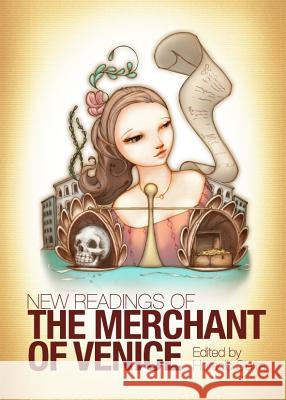New Readings of the Merchant of Venice » książka
New Readings of the Merchant of Venice
ISBN-13: 9781443841764 / Angielski / Twarda / 2013 / 210 str.
The last decade has witnessed a spate of high-profile presentations of The Merchant of Venice: the 2004 Michael Radford film, 2010's New York City Shakespeare in the Park production, as well as the play's Tony Award-nominated 2010-11 Broadway run. Likewise, new scholarly works such as Kenneth Gross's Shylock is Shakespeare (2006) and Janet Adelman's Blood Relations (2008) have offered poignant insights into this play. Why has this drama garnered so much attention of late? What else can we learn from this contentious comedy? How else can we read the drama's characters? Where do studies of The Merchant of Venice go from here? This collection offers readers sundry answers to these questions by showcasing a sampling of ways this culturally arresting play can be read and interpreted. The strength of this monograph lies in the disparate approaches its contributors offer - from a feminist view of Portia and Nerissa's friendship to psychoanalytic readings of allegories between the play and Shakespeare's Pericles to a reading of a Manga comic book version of The Merchant of Venice. Each essay is supported by a strong basis in traditional close reading practices. Our collection of scholars then buttresses such work with the theoretical or pedagogical frameworks that reflect their area of expertise. This collection offers readers different critical lenses through which to approach the primary text. Although Shakespeare scholars and graduate students will no doubt appreciate and employ the work of this collection, the primary audience of this anthology is undergraduate students and the professors who work with them. Many budding scholars have had the experience of checking out a monograph from the library and then finding it was a waste of time because the author spends three hundred pages discussing a perspective of which they have no interest. With this collection, students will not only see how multi-faceted interpretations of the play can be but they also are more likely to find essays that appeal to their own research interests.











